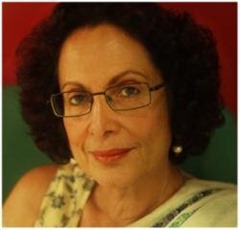India’s Parsis are so respected because they alone have never been involved in communal skirmishes. Ironic then that our own ugly wars are hurtling us to our doom. The most divisive issue is intermarriage, now a malignant obsession. One radical change could robustly alter our critical demography: 57,000, and shrinking by the day. But what chance does it have in today’s shrill orthodoxy and a disgracefully bickering leadership?
Article by Bachi Karkaria in TOI

In 1909, Justices Beaman and Davar of the Bombay High Court went beyond ruling on the hotly opposed ‘conversion’ of R D Tata’s French bride. They appended a definition of ‘Parsi’, declaring that it applied to the descendants of the original band of Zoroastrian refugees, but only along the male line. This judicial zeal has denied all secular and sacred rights to the children of a Parsi woman married to a non-Parsi. They cannot be initiated into the Zoroastrian faith through the Navjote ceremony. This skew was inevitable in the unquestioned patriarchy of an earlier age, but it has actually worsened in the decades enlightened by gender equality. Trustees and priests have been aggressively — and whimsically — barring even these fully Parsi-Zoroastrian intermarried women from fire temples and traditional funeral rites.
What began in the courts has once again arrived there, and with it an opportunity to end this regressive discrimination. On April 21, the Supreme Court agreed to examine the special leave petition filed by Goolrookh Gupta, challenging the 2012 ruling of the Gujarat High Court that she ceased to be a Parsi Zoroastrian on account of her marriage to a non-Parsi, despite being married under the Special Marriage Act, 1954, and hence had no right to ask the Valsad Parsi Anjuman Trust to allow her to pray at the fire temple and, when necessary, to perform the funeral rites of her aged parents in the Tower of Silence.
The civil marriage law can be availed of by any Indian national anywhere, and does not require religion to be renounced by either party. Gupta challenged the proposition of the Gujarat HC that a wife automatically acquires the religion of her husband, stating that it amounted to the denial of the fundamental right to freely profess and practise one’s religion, a gender-neutral guarantee under Article 25. The Supreme Court will deliberate on Gupta’s petition in August.
A second case is potentially more cataclysmic. At safe distance from the obiter dicta of the Bombay Parsee Punchayet, Kolkata’s tiny but vibrant Parsi community has been, like Delhi’s, close but not closed. From here has risen a challenge to the fundamental 1909 judgment itself. The soft-spoken basketball player and homemaker, Prochy N Mehta is an unlikely firebrand, but the Calcutta High Court will hear in June an originating summons for interpreting the trust deed of the city’s only remaining fire temple. She had sought permission for her grandchildren to enter it, a practice stopped by the new priest.
Their father is a Hindu Brahmin, but, in a joint show of defiance by three prominent Parsi families with intermarried daughters, all these grandchildren had their Navjotes performed by progressive priests, and so are initiated Zoroastrians ( though technically not Parsis). The Bombay Parsee Punchayet had squandered over Rs 2 crore in legal expenses trying to ‘defrock’ such ‘retrograde’ priests, who also provide the final grace of funeral prayers denied to the growing number opting for cremation.
Almost 30% of Parsi women remain unmarried largely because of this emotional blackmail. Accepting the children of intermarried Parsi women would replenish both community and faith in one go. But the strident orthodoxy plays on the paranoia over grubby fingers grabbing communal funds and coveted housing.
It is an existential choice. But a diluted gene pool has a logical case when a ‘pure’ one is increasingly non-viable. Parsis claim exclusive rights to Zoroastrianism, so making the ethnic sacrifice may again be the only way to save their ancient religion. Some 1,200 years ago, didn’t our forefathers bravely abandon their millennia-long Persian identity for just such a worthier cause?

